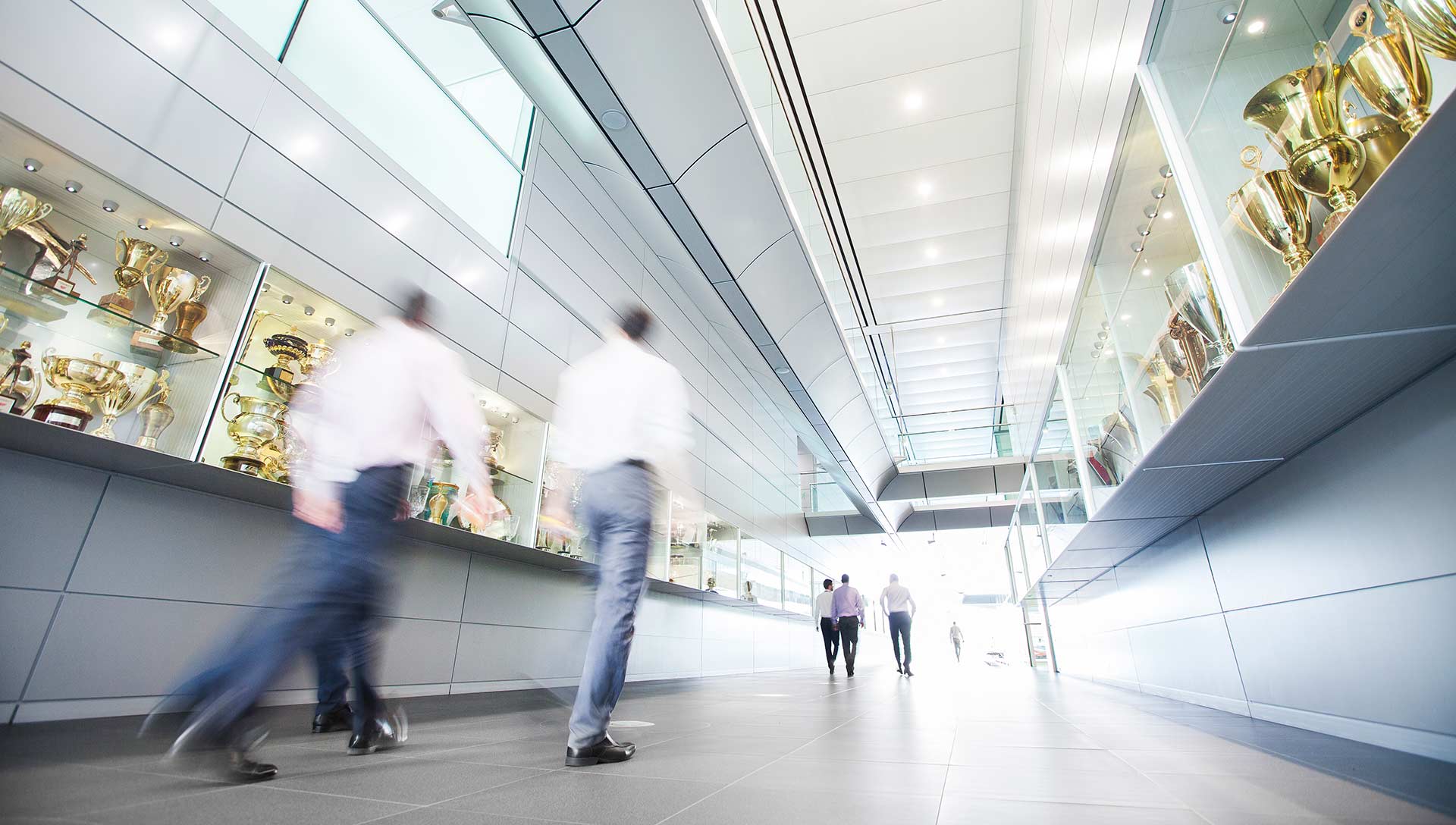
Inside our substantial machine shop upgrades
As well as improving reliability and accuracy, the new Mills CNC machinery could increase production speeds by up to 20%
Reading Time: 8.6 minutes
We’re still several weeks away from the MCL38 being completed, but that distinctive ‘new car smell’ is already in the air at the McLaren Technology Centre. It’s coming from the machine shop, but it’s not the car, or even the parts – it’s the machines themselves.
Faster and more reliable, that’s been the mandate at the McLaren Technology Centre over the past few years. How can we give our team the tools to deliver consistent results in a shorter time frame?
Installed over the winter period, the upgrades in our machine shop are the latest improvements in a long-term Formula 1 project, which also includes our own wind tunnel, a next-gen simulator, and our new composites facility.
CEO Zak Brown, Team Principal Andrea Stella, and COO Piers Thynne have been working on these developments as a matter of urgency. The machine shop upgrades are the latest improvement to be completed, with machines being replaced that were 20 years old, having been installed and used since the MTC first opened in 2004.

Mills CNC are an illustrious and well-respected UK-based organisation
The new machines are now up and running, with this particular project having started just over 12 months ago when Spencer Ford, Head of, Machining & Additive Manufacturing, and his team first handed over a suite of car parts to potential companies, who assessed what machinery would be required and how we could improve and speed up our processes while continuing to maximise reliability and accuracy.
UK-based company, Mills CNC, an illustrious and well-respected organisation within this sector, were selected as our supplier for this work and they began plotting out the exact requirements.
“We are in such a fast environment that the best solution isn’t always obvious, so to work with a supplier such as Mills CNC, where we can bounce ideas off each other, is really exciting,” explains Spencer, as we walk the machine shop floor. “We’ve only been working on this project since 2 January 2023, so it’s come together really quickly – we’ve been working flat out.
“When we handed over this suite of parts to look at, their team really dove into what our needs were and spent a lot of time trying to understand and service that. It has been really successful, and we’ve learned a lot from this, in terms of what we can do and how we can do it, which excited us.”
Machine shop upgrades at the MTC
As we speak, the mill is currently working on a set of complicated suspension components. A massive range of parts, from simple to complex, for our Formula 1 cars will be produced by the new machinery. The Puma and Lynx machines, for example, will work primarily on round components, which require turning and/or milling – this could be anything from a very simple washer to hydraulic fittings or wheel nuts.
The largest machine we’ve brought is the Puma SMX2100, a mill-turn machine, which, simply, will allow us to create the parts faster without having to traditionally turn them and put them on a separate milling machine. Turning is when a piece is rotated against the cutting tool, whilst milling is when the cutting tool is rotated against the stationary piece. Some items require both processes, others require one or the other.
“We’re already seeing an impact with some of these machines, such as the smaller Lynx for example, in terms of reliability and repeatability,” says Spencer. “Some of the other machines, where parts are more complicated, we won’t see the impact until further down the line – six months plus.
“I would say that the new machinery could increase the speed of production by as much as 10 to 20%. If you imagine an older computer operating system versus the new one, it's similar to that. It is just a lot faster. These give us so many new options and we’re excited to work out how to get the best of them, with the help of Mills CNC.”

Spencer Ford (L) and Piers Thynne (R) with Mills CNC Chief Executive Officer Tony Dale (C)
The McLaren Technology Centre is a 24/7 facility with separate day and night shift crews. These are key to the speed and success of car build and producing upgrades throughout the year, meaning that a range of consistent reliable machines that can run during the day and night are vital. Many of these machines will be used multiple times every single day, whilst others will be switched on and set-up, before being left to run throughout the night.
The two Lynx 2100’s, for example, include features and programmes we’ve never previously had. The team will be able to switch these on and set them up, put 20 to 30 bars of steel in the back and leave them running for long periods at a time whilst they produce around 1000-wheel components.
“That is why we went with these Lynx machines with bar feeders from Mills CNC, as we can just let these run, knowing they’re as accurate as can be,” says Spencer. “It’s also why we went with items like the glass feedback scales, which allow us to stay on top of temperature control, which means we can work to much higher tolerances than we were able to before. Previously, we were not able to accurately judge when machines had reached their tolerance, so had to air on the side of caution.”
Given it’s been nearly two decades since we last upgraded our machinery, the updated technology will undoubtedly play a key role in improving and speeding up processes moving forward, but it is the reliability and accuracy of the machines that Spencer believes will be the most beneficial to the team in the long-term.

Mills CNC will service and maintain the machines as well as providing in-depth training and support
The parts produced are much more likely to be correct the first time, and the machines are a lot less likely to break down – saving significant costs. There’s also the support provided to us by Mills CNC, who will service and maintain the machines as well as providing in-depth training and support.
When purchasing the new machinery, Spencer and the team had one eye on the upcoming overhaul of regulations in 2026, which are set to shake things up and add new challenges to car build. Having the latest machinery in-house, with a host of new functions, will give us a better platform to build from when work on the 2026 car begins – even allowing us to bring previously outsourced work in-house, which will save significant time and costs.
“Going forward, we'll be looking to change machines every eight to 10 years,” Spencer explains. “We’ve gotten to a point where we realise it doesn’t make financial sense to keep them too long because the technology keeps improving. You want to be at the forefront of that because that is how we get back to the front of the grid and stay there.”
And that, as always, is the ultimate aim.
related articles

Inside our state of the art new wind tunnel

Lando's lessons learned
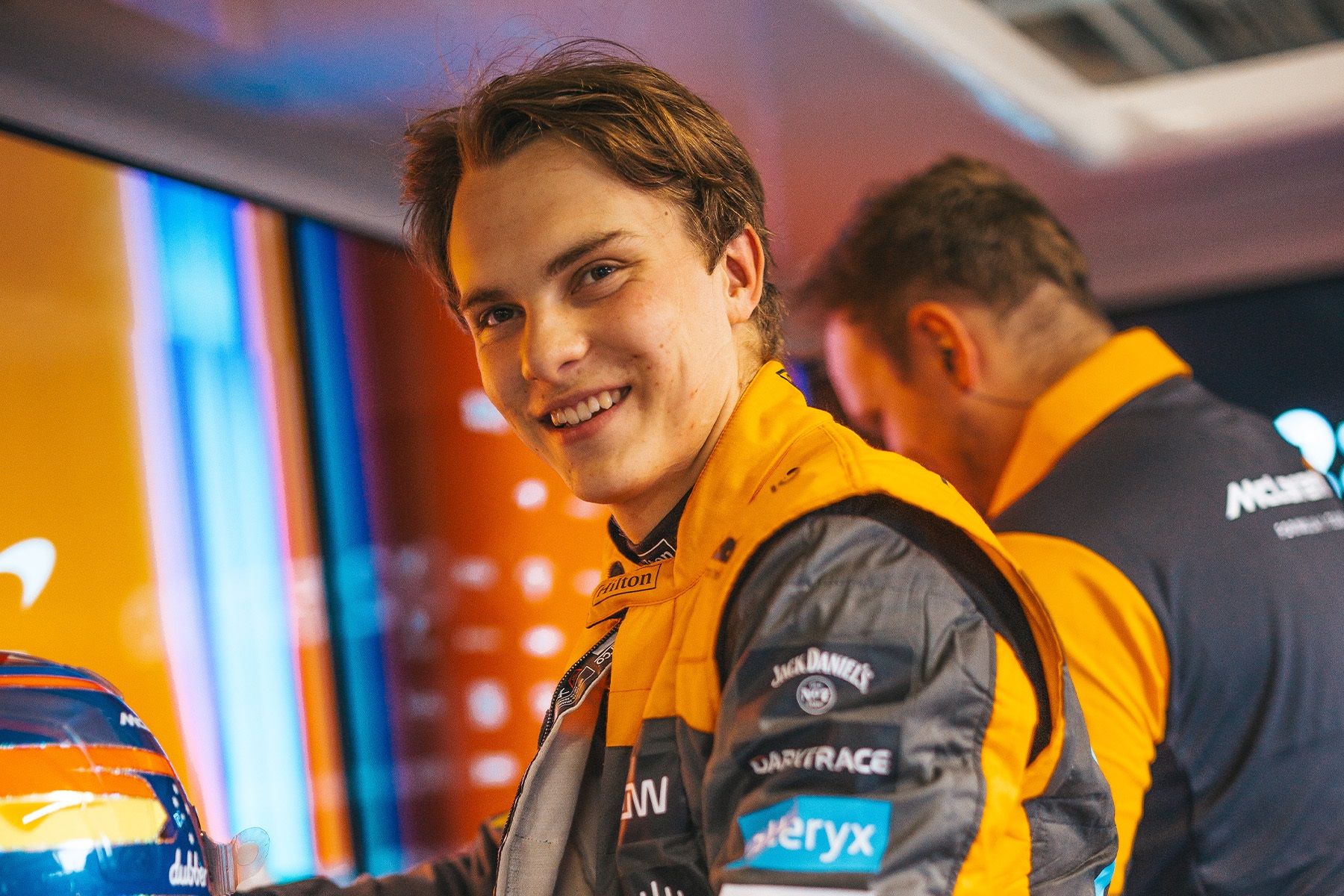
Oscar’s lessons learnt
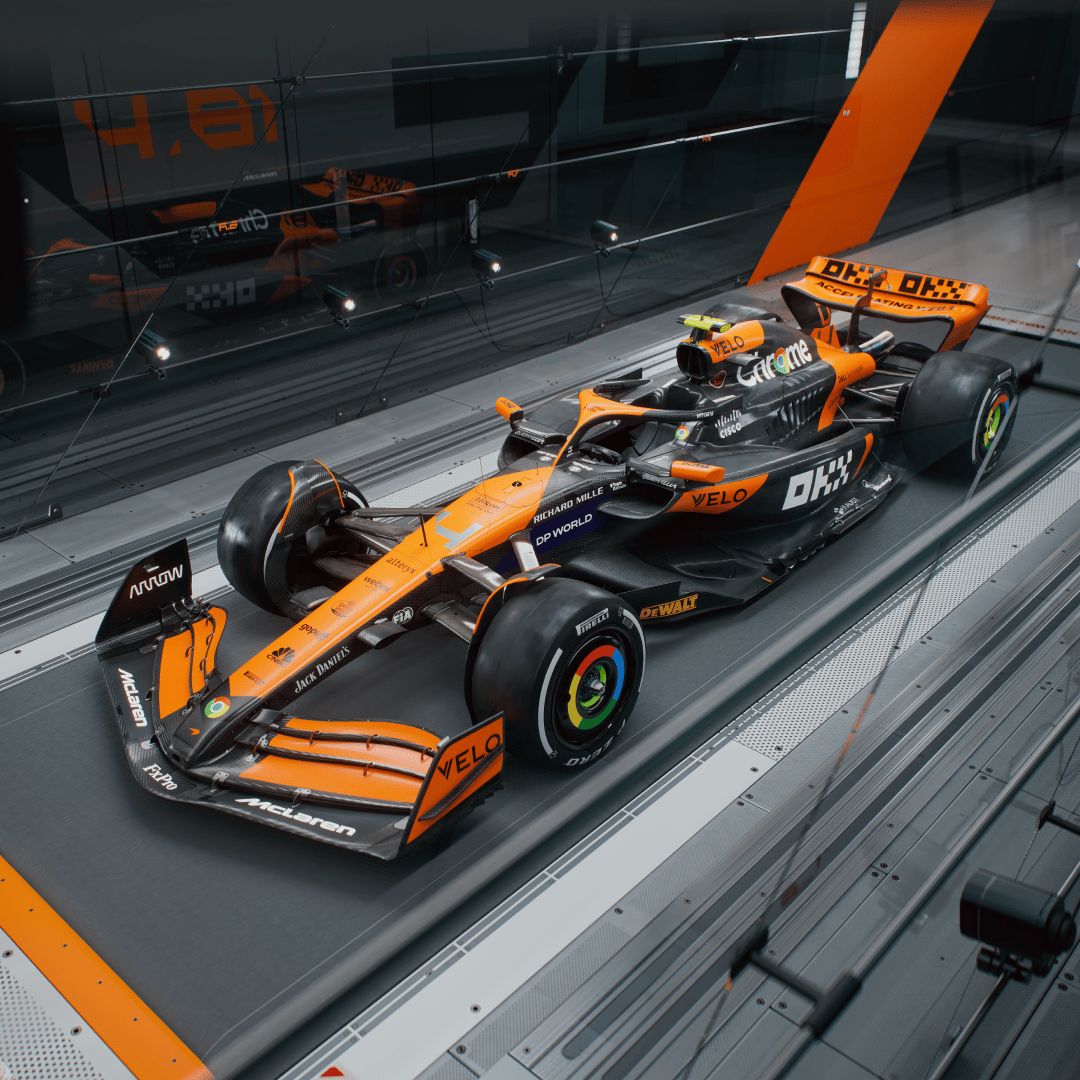
McLaren Racing unveils new livery for 2024

How did Lando and Oscar spend the winter break?
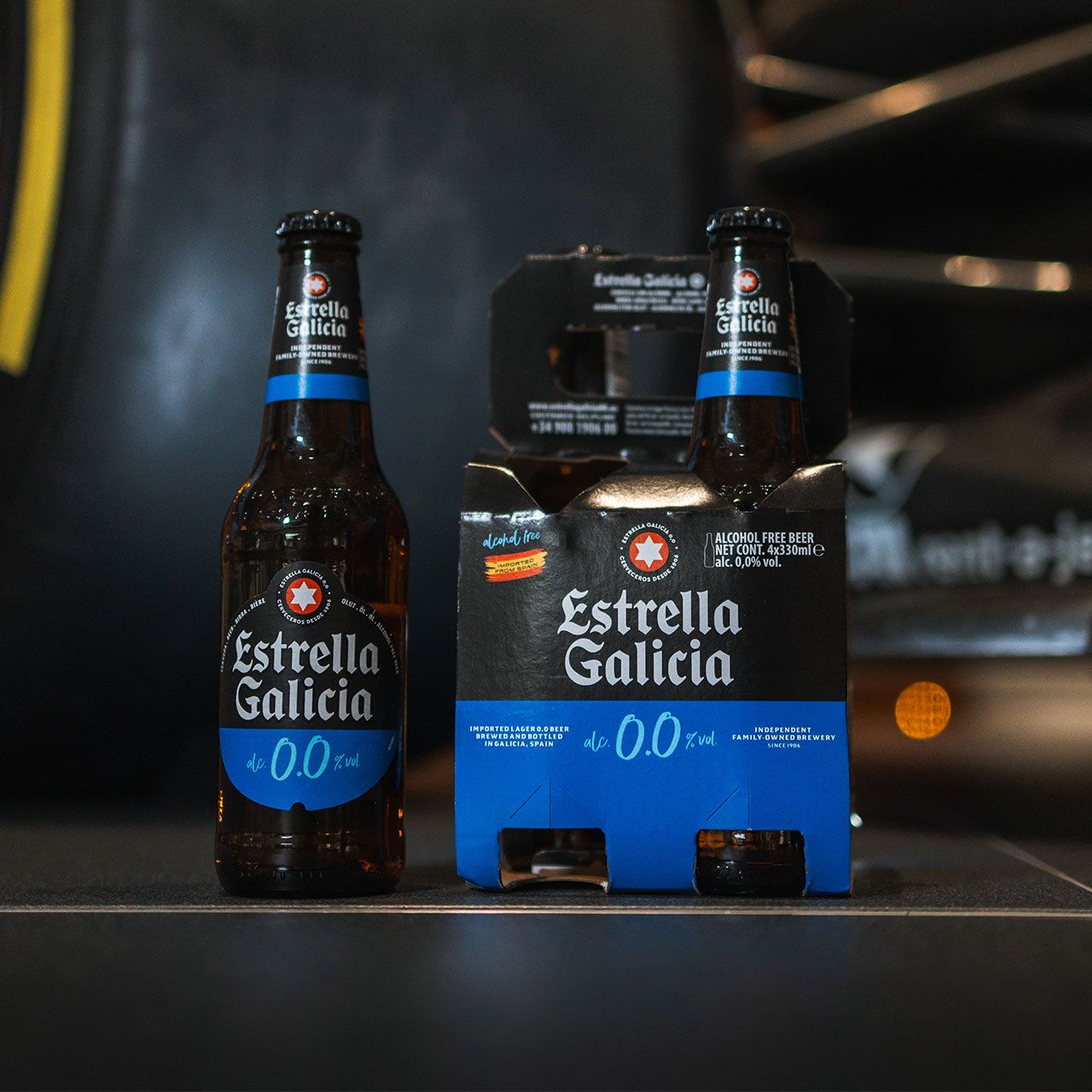
The return of Estrella Galicia 0,0
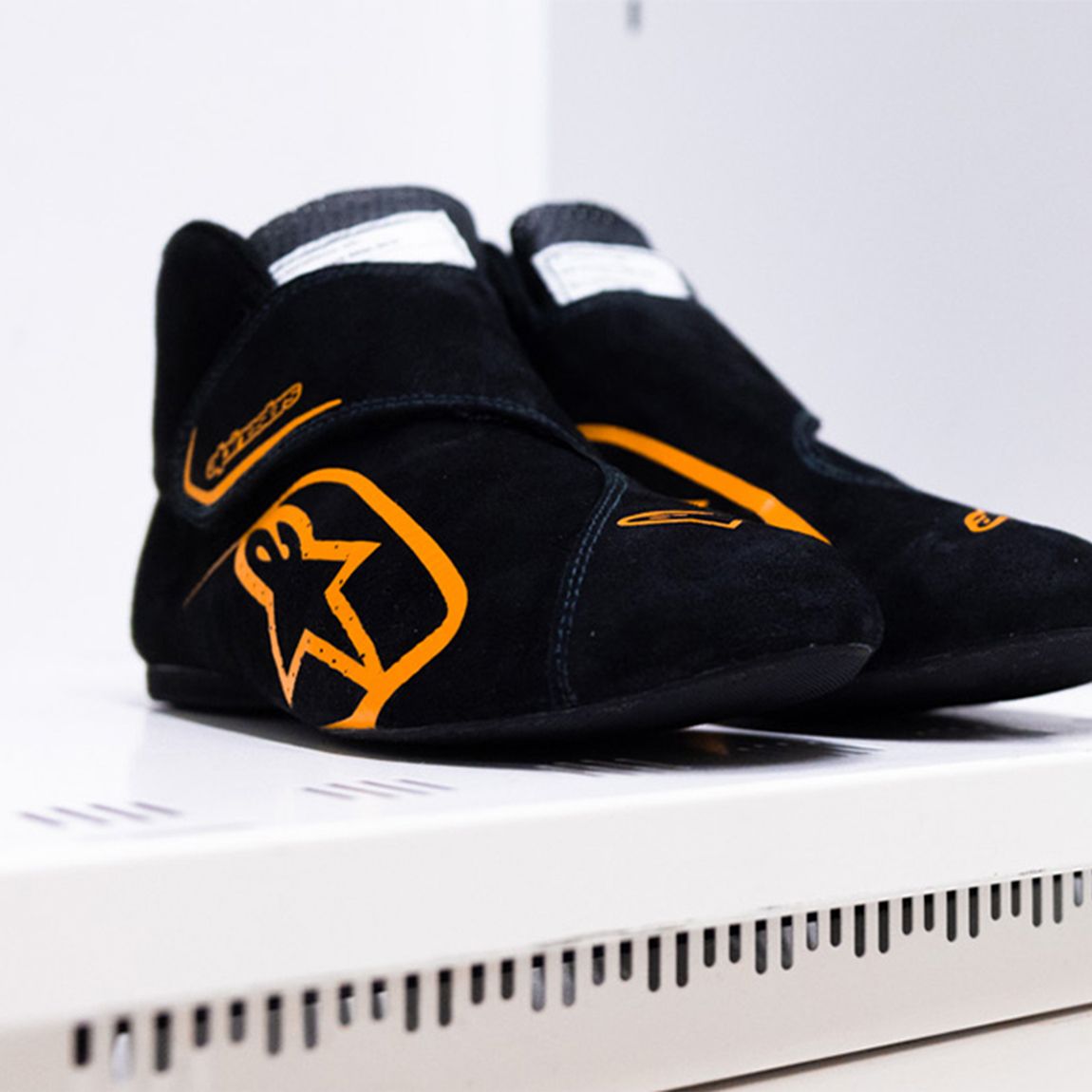
McLaren Racing and Alpinestars to suit up together from 2024 season

A letter from Zak Brown

The qualities that make Andrea Stella a tremendous leader

Welcome to the night shift, where car build never stops



